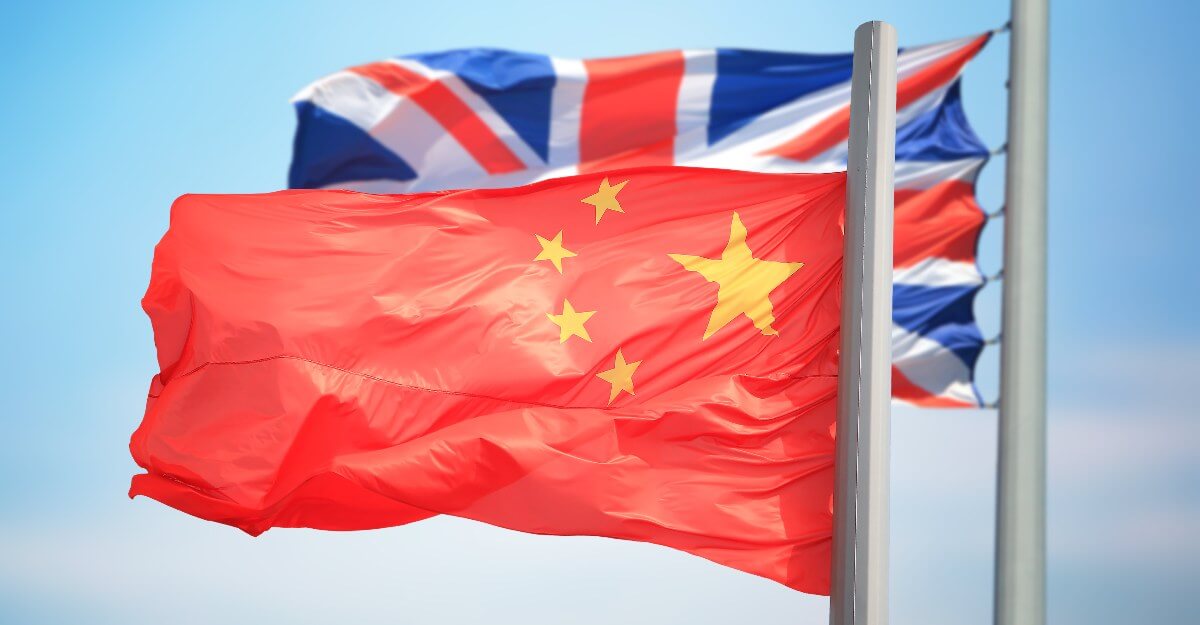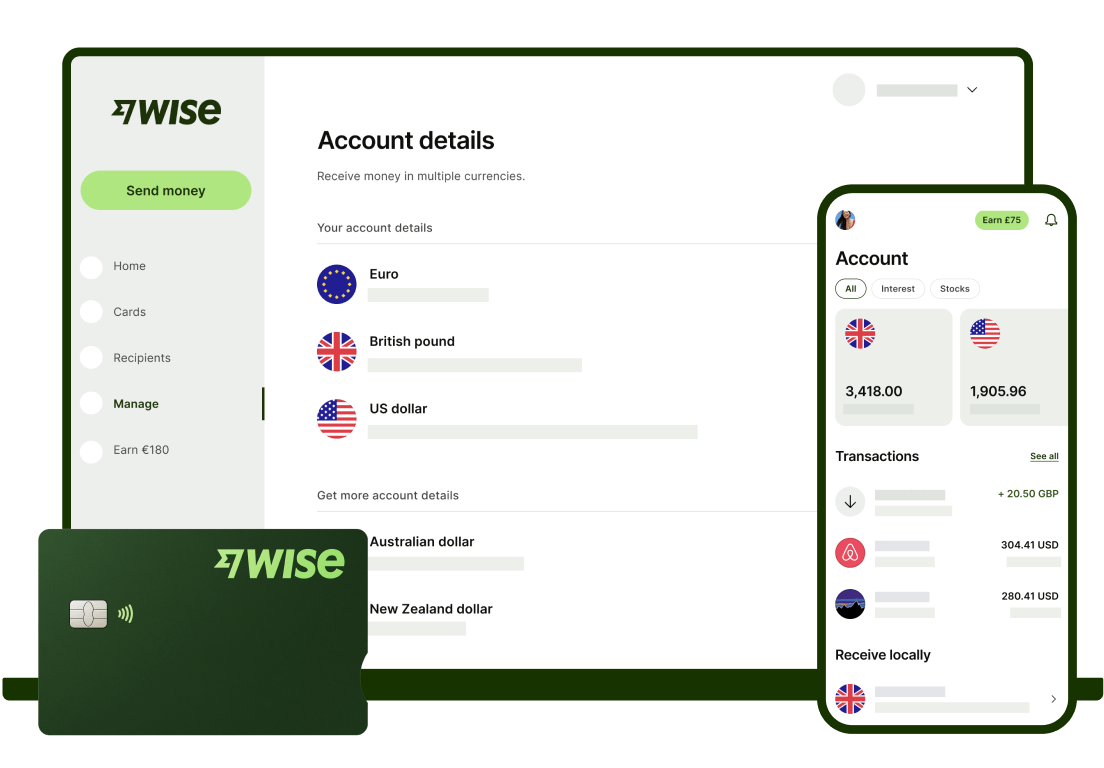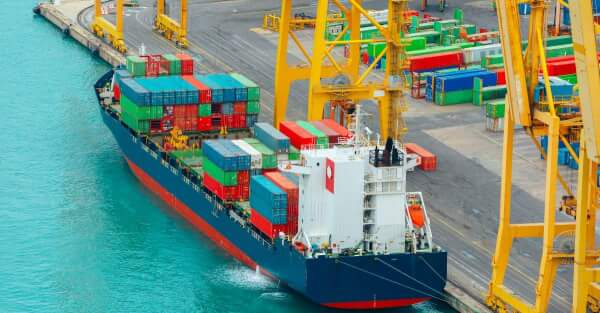Importing from Spain to the UK: Complete Business Guide
Read our complete business guide on importing from Spain to the UK, covering everything from customs to shipping methods.

If you’re exporting goods or services overseas, you’ll need to know to correctly invoice your clients in each country. The rules and customs can differ between customers, and it’s important to get it right to ensure you’re paid properly.
In this guide, we’ll focus on selling to China from the UK. We’ll run through Chinese invoice requirements, so you know what info to include and whether or not you should charge VAT.
We’ll also show you a handy tool for getting paid quickly and easily by your overseas clients. Open a Wise Business account and you can receive international payments in multiple currencies, without the complexities of using a bank.
💡 Learn more about Wise Business
China was the fourth largest trading partner of the UK by the end of 2022, accounting for 6.5% of total UK trade. Exports from UK businesses to China totalled £37.6bn in the same year.¹
So, it’s safe to say that there are plenty of trade and export opportunities between the UK and China currently. Some of the most popularly traded goods and services according to the Office of National Statistics (ONS) include the following:²
- Machinery and transport equipment
- Fuels
- Cars
- Material manufactures
- Travel and transportation services
- Financial services
- Intellectual property services
- Telecomms, computer & information
If you plan to export to or trade with Chinese clients, you’ll need to get to grips with invoicing. This can be complex with overseas customers, due to differences in currency, VAT and tax, or simply an unfamiliar invoicing system.
Invoicing an overseas customer is a little different to invoicing other UK companies. You need to make sure you provide all of the information they need, which is likely to be more extensive and detailed than you’re used to.
Chinese companies have to adhere to strict regulations with regards to invoicing (particularly with e-invoicing) and VAT. So it’s worth checking with your client in advance to make sure your invoice will meet their requirements.
But generally speaking, here’s the information you’ll need to include on international invoices:³
- Invoice issue date
- A unique invoice reference number
- Your company’s name and registered address
- The customer’s company name and registered address
- A description of the goods or services provided, plus the quantity (if applicable)
- Where and when the goods or services were supplied
- Total amount payable in the pre-agreed currency
- Payment date, according to agreed contract terms
- Payment information, such as bank details
You might also consider providing a Chinese translation of your invoice.
Remember that the clearer you are with invoicing, the easier it’ll be to get paid and reduce any disruption to your cashflow.

Value Added Tax (VAT) can add extra complexity to international invoicing. According to HM Revenue & Customs (HMRC) in the UK, you don’t normally need to charge VAT on selling goods outside of the UK.⁴
This applies to all destinations, including China. You should be able to zero rate any exports.⁴
China’s currency is the Chinese yuan (CNY), also known as the renminbi.
However, you’ll find that many businesses and merchants in China are happy to trade in US dollars (USD) when buying and selling goods.
There is no statutory payment term in China, so you’ll need to negotiate with your client and agree on a payment schedule that works for everyone.⁵
And of course, you’ll need to decide on the best way to receive international payments from Chinese customers. One solution that could save you time and money is a Wise Business account, which we’ll look at next.

Banks can be an expensive way to get paid by your international clients. They often charge high fees to send and receive international payments, convert currencies or to set up multi-currency accounts. This could eat into your profits and impact on cashflow. It can also be slow.
Luckily, there’s a better way. Open a Wise Business account online and you can get unique account details in 9+ currencies for free. This includes US dollars, a currency your Chinese clients may prefer to pay you in.
With these account details, you can get paid quickly and securely. And you won’t lose out to poor exchange rates when converting USD back to GBP, as Wise guarantees the mid-market exchange rate with no expensive mark-ups. There’s just a small fee to convert the currency.
If you prefer, you don’t have to convert the currency at all. You can hold USD in your account ready to cover future expenses in that currency - such as paying overseas suppliers or workers.
Plus, you can make things even easier for your client using the Wise Payment Link feature. This lets you request payment, choosing the currency and preferred payment method. This can speed things up for both parties.
Get started with Wise Business 🚀
And that’s it - your essential guide to invoicing China from the UK.
We’ve looked at China invoicing requirements, including all the info you’ll need to include. You will still need to communicate with your client about their own particular requirements, to prevent any delays with getting paid.
But this should act as a good starting point for your new trading relationship with clients in China.
Sources used for this article:
Sources checked on 29-04-2024.
*Please see terms of use and product availability for your region or visit Wise fees and pricing for the most up to date pricing and fee information.
This publication is provided for general information purposes and does not constitute legal, tax or other professional advice from Wise Payments Limited or its subsidiaries and its affiliates, and it is not intended as a substitute for obtaining advice from a financial advisor or any other professional.
We make no representations, warranties or guarantees, whether expressed or implied, that the content in the publication is accurate, complete or up to date.

Read our complete business guide on importing from Spain to the UK, covering everything from customs to shipping methods.

Read our complete business guide on importing from Türkiye to the UK, covering everything from customs to shipping methods.

Is Tide Bank safe? Find out everything you need to know about Tide Bank business account security here.

Is Revolut Business safe? Find out everything you need to know about Revolut UK security here in our helpful guide.

Read our helpful guide on how to start a business in Romania from the UK, including info on company formation, legal entity types and required documents.

Read our helpful guide on how to start a business in Lithuania from the UK, including info on Lithuania company formation, legal entity types and more.